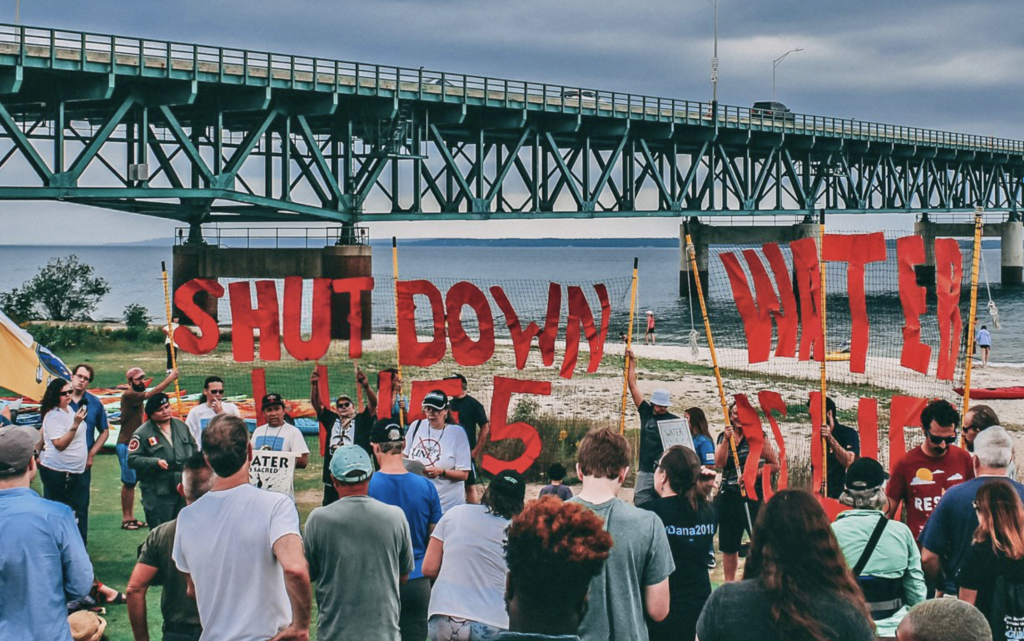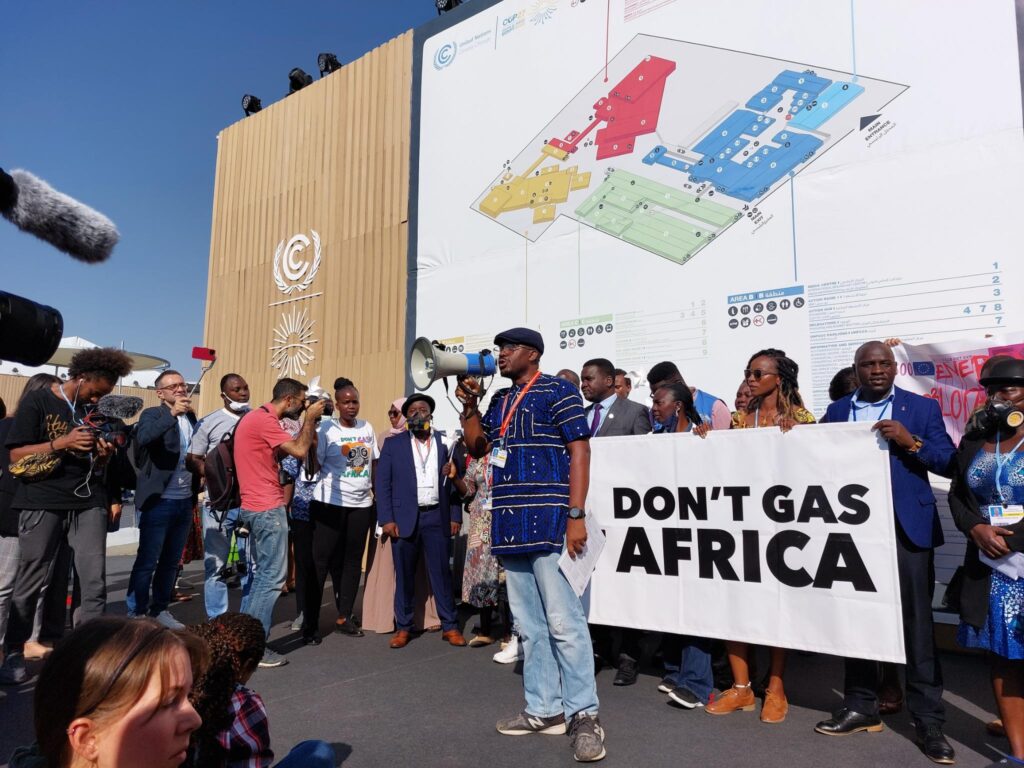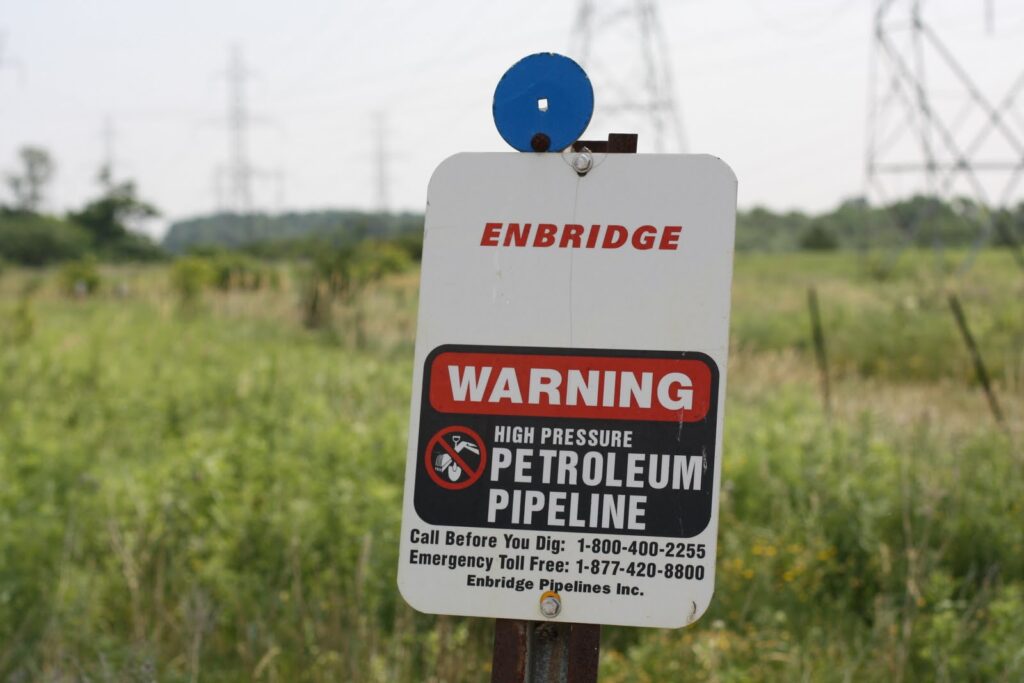At a time when fossil fuel phaseout is paramount, oil and gas pipelines exacerbate the climate crisis and directly threaten local communities and ecosystems. CIEL supports local partners to defend their rights, develops legal strategies to hold companies accountable, and works to stop money from flowing into polluting projects.

Defending the Defenders Confronting the East Africa Crude Oil Pipeline
In Uganda and Tanzania, oil companies are rushing to construct a new 1,400- kilometer heated oil pipeline — the world’s longest — through Eastern Africa.
The proposed East Africa Crude Oil Pipeline (EACOP) has already harmed local populations through physical and economic displacement. If constructed, it would permanently deprive thousands of families of their lands and livelihoods, jeopardize water sources, and endanger protected habitats from Uganda to Tanzania. It would also generate millions of tons of greenhouse gas emissions.

Together with local partners like the African Institute for Energy Governance (AFIEGO) and the global coalition to #StopEACOP, CIEL is amplifying concerns about the project’s impacts with UN human rights bodies, increasing international attention to human rights violations, environmental damages, and climate threats. This coalition is also pressuring financiers not to bankroll the destructive development. The global campaign has exposed the legal and financial risks of investing in EACOP, prompting over twenty-seven
major banks and twenty-four insurers to rule out support for the project.
Amidst escalating retaliation against environmental and human rights defenders, including intimidation and criminalization, CIEL has provided rapid response communications to raise awareness of breaking developments, alert members of the diplomatic corps, and ensure safety for individuals under attack.
Protecting Indigenous Sovereignty Against Line 5
In Anishinaabe territories surrounding the Great Lakes, a seventy-year-old pipeline carries oil and gas originating in Canada through Wisconsin, Michigan, and Ontario. Owned and operated by Enbridge, Line 5 was originally designed to last only fifty years. Its operation in the Great Lakes region has resulted in more than thirty documented spills to date, releasing an estimated 1.1 million gallons of petroleum into the environment.

Indigenous communities have long demanded the shutdown of Line 5. Every day that this pipeline remains operational increases the likelihood of further catastrophic oil spills, endangering Indigenous territories and cultures, the Great Lakes, and other essential sources of freshwater. While a US court has found that Line 5 is trespassing on Indigenous land — and Michigan’s governor revoked the company’s permission to run the pipeline — Canada continues to support its operation.
CIEL has been working with partners and affected Indigenous communities to demonstrate that Canada’s support for the Line 5 pipeline violates Indigenous Peoples’ territorial sovereignty and their right to a healthy environment, among other rights. With CIEL’s
assistance, they secured a strong recommendation from the UN Permanent Forum on Indigenous Issues, urging Canada and the US to uphold their human rights obligations and decommission Line 5. This recommendation was echoed by the UN Special Rapporteur on the rights of Indigenous Peoples, who also pointed out that Canada’s efforts to extend the operation of the Line 5 oil pipeline contradicts its international commitment to phase out fossil fuels to mitigate climate change.
